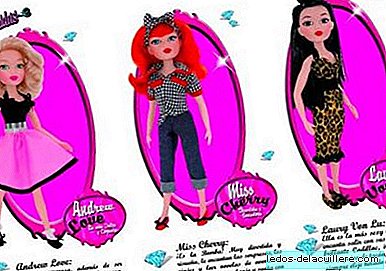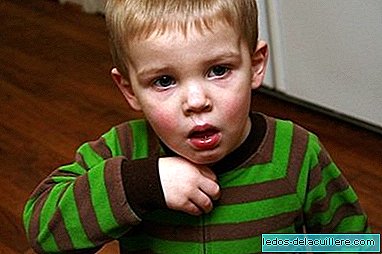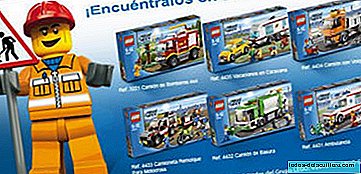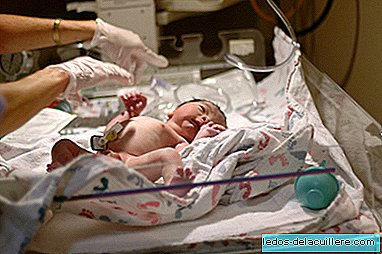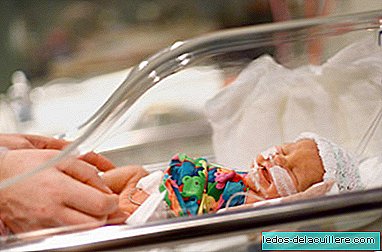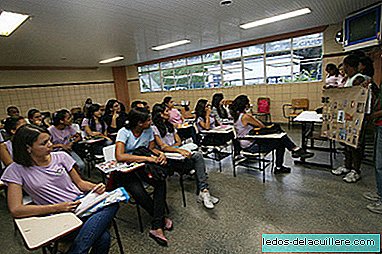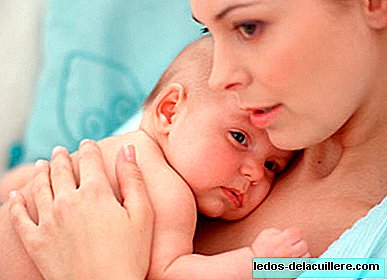
We continue today interviewing Ruth Giménez, who is a psychologist, doula, infant massage educator and international lactation consultant (IBCLC. This time we are going to talk about parenting practices that favor primary health in order to help children have the best possible basis for their normal development.
What is the value of breastfeeding in this?
No one would dare to deny today that it is the best for our children, because it is the food that nature has prepared for our species, therefore for an optimal development of the human being, it must be fed with breastfeeding. It is the gold standard of infant feeding. But we all also know that breastfeeding is not just physical food, it is also emotional nutrition. The feeling of love, warmth, security, confidence, contact with the skin, the sound of the heartbeat ... All this also favors the physical, mental and emotional development of the baby.
Can infant massage also contribute a lot to the relationship with the baby?
Everything that involves skin-to-skin contact, such as infant massage. The skin is the largest organ of our body and is full of nerve endings, through the sense of touch a lot of information is received that develops its neural network. In addition, massage is a great facilitator of the link, it brings together all its benefits in four large groups: interaction, relaxation, stimulation and elimination.
Can you tell us more about these four benefits?
It would be very broad to develop these four benefit groups here, but I am going to talk a little about the interaction group that is where the link promotion is located. With the massage an intimate and quality moment with the baby is promoted, of individualized and exclusive attention for him, a non-verbal communication is also developed, with a special attention to the baby's signals. A feeling of respect is encouraged, since we ask the baby for permission and we are always attentive to whether the baby wants to continue with the massage or not. In addition, all the senses participate and encourages early contact with both parents, this facilitates the establishment of the bond with the father as well.
And understanding the baby better increases self-esteem and confidence and improves positive behaviors in parents?
That's. And it also reduces stress hormones, stimulates breastfeeding, there is a decrease in the chances of suffering from postpartum depression, and in case of suffering from it there is an improvement, due to the increase in confidence in the ability to care for the baby since, in the social aspect, facilitates the encounter with other fathers and mothers.
Is carrying the baby beneficial?
Porting is another way to bring the baby close to the chest, in intimate contact. The baby's first months are delicate and taking them as long as possible near the breast, in conditions similar to how he was in the womb, helps him adapt to the outside world. The baby receives a lot of stimulation throughout the day, and if this happens being on top of his mother, father or attachment figure, he will feel much more protected from the world and this gives him greater security.
Is colecho a highly recommended practice?
Like all practices related to respectful and attachment parenting, it is controversial. Recently some Englishmen (Robert Carpenter and others) published a new study advising against it again to increase the sudden death syndrome of the baby. Fortunately María Berrozpe and Gemma Herranz have been disengaged point by point the study and it has been seen that they had missed many very important variables to assess the reliability of the study and its conclusions. You can read more about this in The scientific debate about the reality of children's sleep. The conclusion is that the colecho, following the guidelines of the safe colecho recommended by WHO and other institutions and professionals, is very healthy because it favors the physical, psychological and emotional development of the baby, it favors breastfeeding which is also a protective factor against Sudden death syndrome, provides security to the baby by having close to his mother, allows the baby to regulate his sleep patterns with those of the mother and the mother can also enjoy a more restful sleep. This to name some benefits.
In addition to favoring the bond and development of the child, can not do these harm the child?
Yes, it has repercussions, and not letting families know is informing inappropriately. It is the responsibility of professionals to give truthful information based on scientific evidence about these practices, and not to rely on “opiniology”, which happens a lot.
Or justify not doing it for not wanting to make mothers feel guilty that they don't. If a respected birth, breastfeeding or intimate contact with the baby at all times, favors the child's bond and development, it is logical to think that not doing so is depriving him of all that, therefore it could harm him.
To what extent do you think it helps to favor a secure bond in a true improvement of society as a whole?
To really protect the dyad influences a social and general health improvement, why this message has not yet penetrated in the whole health field and in society in general? There are many years, even centuries, in which all the physiological processes related to the sexuality of women are involved: pregnancy, childbirth, breastfeeding ... We also continue to be established in a society of patriarchy and uprooting from all this is frankly difficult, although We are on the road.
Does our culture promote detachment?
We come from a culture of "detachment" very established, where our mothers, even grandmothers were convinced that everything that came from our body, our milk, our instincts, were bad. This message was so much that it was transmitted from generation to generation and it really is something that we have so “on the hard disk” that it is a very difficult and profound job to change it. Even mothers who are aware and worked, in times of difficulties or vulnerability we doubt our abilities, and the environment makes it difficult.
And the professionals?
Health professionals, like people who are, also have this baggage.
They may have been raised in this way and have also raised most of them surely according to these beliefs. In addition there are so many years of interventionism that breastfeeding or physiological delivery is something that is not even studied in universities.
Can the reaction upon receiving the updated information be hostile?
That now begins to say we were wrong and the scientific evidence proves it, opens a wound in those who have done so, mothers and fathers, whether they are health professionals or not.
Many refuse to recognize it and feel the need to defend what they once did, and the reality is that they did it thinking that it was the best for their children, because professionals said so, and we all want the best for our children. Health professionals also feel the need to defend the way they have worked so far and some are not willing to change. This would imply that the mother has control of her birth, breastfeeding etc., therefore they lose it, and are not willing to work like this.
Why is it so important that professionals are up to date and well trained?
To be able to correctly inform mothers, because they have a great responsibility in their hands, which is the health of children who are the society of the future and cannot and should not base their work on their opinion or their personal experience.
We will finish tomorrow this interview with the psychologist Ruth Giménez, hoping that it has helped you to have a more complete vision of what a baby needs when it arrives in the world to develop the best possible primary health.
In Babies and more | "The oxytocin epidemic could be related to the autism epidemic." Interview with Dr. Emilio Santos (I), Interesting debate on parenting with attachment in La 2, "The debate on children's sleep is also among professionals." Interview with biologist María Berrozpe, "In the medical career they gave us an hour of information on breastfeeding": Interview with Kika Baeza, doctor and lactation consultant




